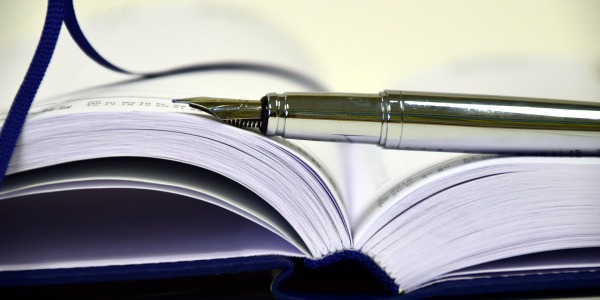The prime way God keeps his people faithful, is his Word. The bible, opened, taught, explored and applied, is the fountain out of which everything else flows: church, prayer, fellowship, the Lord’s Supper, and all the other habits which Christians traditionally call the “means of grace.’
But for Christian leaders, especially pastors, this is a treacherous place to stand, because our task of opening the bible to benefit his people can easily mean we never open the bible to benefit us. When we are pressed for time, and there is a demand for the next talk or study, it’s dangerously easy to skip over our own reading for the sake of others.
And I vividly remember the advice of a church leader to me, that if your bible reading is getting stale, read something else. I think that was, in a single sentence, the worst piece of spiritual advice I have ever been given.
Because if our bible reading is getting stale, the problem is never with the bible: the always fresh, living, Word of Life. No, the problem is with our sleepy eyes and sluggish heart.
So what can we do? Here are nine lessons I’ve learned as I have tried to avoid the dangers:
1. Own your own bible. By which I mean, in the range of bibles you own (and be honest, most of us own loads), I have learned the value of owning one which I never, ever use to prepare for anything other than my own Quiet Time. The reason is very simple: no matter how busy I am in sermon prep, if that bible is sitting unread on my table that means that there is a critical piece missing on my own spiritual life. It’s a visible reminder of my own responsibility for my walk with God.
Of course, ideas which bubble up there find their way into talks and sermons: that’s inevitable, because truth is truth, and what’s true for me in an armchair will be true for me in the pulpit. But – my talks never start with that bible. That’s private.
2. Change your style. In that range of bibles sitting on my shelf (no, be honest, shelves), there is a common feature of the helps that are offered me. Sometimes it is a massive and gorgeous study bible, other times it is a more modest set of footnotes and cross-references. They are great helps to understanding.
But, all too often, they can easily be distraction. I find myself reading the footnote – or at least being distracted by it – rather than reading the bible text itself.
So I really welcome the emergence of so-called ‘readers bibles’, with minimal visual clutter, text laid out for easy reading, and an implicit encouragement to become immersed in the passage.
3. Change your translation. The first NIV came out a formative time for me, and that translation carved such deep grooves into my heart and mind, that to this day if I come out with a bible passage from memory, the odds are that I will produce it.
But familiarity breeds familiarity, and if that doesn’t breed contempt it certainly blurs the words. So another reason I have lots of bibles is because I need different translations to destabilise me in my reading. None of our translations is perfect, although there’s a good case to be made for each of the major ones, but that’s not quite the point: if a translation is good enough that a team of reputable scholars endorse it, it has a place on my shelves. We don’t have to tie ourselves to just the one we use at church.
4. Buy a pencil. Some of us hate writing in books (which is rather odd, if you think for a moment how authors themselves tend to work), and writing in an expensive bible can seen not just metaphorical but actual sacrilege.
Get over it. Read it with a pencil in your hand, and underline, make notes, observe patterns. Remember, you’re not doing this to write a sermon, but ti dig deep into God’s word for your own benefit. Occasionally Ive played with a coloured system, but over time I’ve learnt that while that is really valuable for deep structural study, it gets in the way of my personal reading, and life is simpler with a standard pencil.
Those four lessons have led me to my current bible of choice: a single column, wide margin, journalling English Standard version. You can read my reviews and preferences here. I don’t actually do a day-to-day journal: I’ve never got into the habit. But with this bible I have found a way to keep a note of particular ideas and insights without having to file them obsessively.
5. Change your pattern. There are many patterns of daily bible readings available now, and all the big study bibles offer a range of options. Use one, stick with it for a couple of years, and then change to one that pairs up the passages differently. That way you’ll keep seeing new interconnections and startling truths. Regular, deep reading is a constant, but the order of the books you read can change to your great benefit.
6. Memorise it. I mentioned how some parts of the bible stick in my mind – bt what about the one that don’t? Again, I’ve learnt to move beyond the haphazard, and to go back to the old-school practice of writing verses on small cards, the references on the back, and memorising and testing myself. It’s frustratingly hard, but well worth while.
And if there’s a book of the bible you’re getting to know well because you are repeatedly teaching from it, what about doing he daring things and seeing if you can learn it by heart?
7. Read closely. The treasure, they say, is in the text. So look at it closely – very closely. Write it out, take it apart, see how it works, look for the oddities. What wouldn’t you know if this verse wasn’t in the bible? It sounds disrespectful but I means this with great reverence: fiddle with it, tinker with it, play with it: like a child playing with a toy by dismantling it to see how it works, get inside the verse and find out what makes it tick. You can’t break it!
8. Love your languages. Meaning that if you ever, once, learned Greek or Hebrew, do your very best to keep them functioning at some level. Don’t get ideas above your station here – you’re probably not going to re-translate the bible – but you will start to see the bible freshly, because you’re looking at it from an unfamiliar angle.
I still remember the day I decoded the Hebrew word for ‘Jerusalem’, and realised that the language could open up for me; and I remember the brutality of first reading Mark 15:24 in Greek: staurousin auton, ‘they crucified him.’ Keep them up.
9. Don’t thrown them out. That’s one more reason why I have lots of bibles: I’ve kept them. Which means I have years of thoughts and observations stored away. At one time I thought about putting them all into one, big, bible, but of course that never happened, and anyway, I still quite like the feel of my old, worn-out copies with the covers falling off. But that’s where I know I can find treasures old.
So keeping fresh in our bible reading doesn’t happen by accident, but it can be worked at with some surprisingly simple practices.
How do you do it? Pile in!
Process questions
- Do you find your bible reading is getting stale? What have you done about it?
- When did you last change your translation?
- When did you last change your reading plan?
- Do you read with a pencil in hand?





Thanks Chris—this is helpful. There may be a typo—’spatial advice’; should that be ‘spiritual advice’?
Thank you!
Thanks Chris – biggest help for me has been reading with a pencil in my hand as well as the Bible. At times I’ve tried writing down one thought each day in a separate notebook – the discipline of doing so helped me to remember one thing amongst many I read.
Yup – the pencil makes the difference between reading and studying!
Thanks for the helpful suggestions, Chris.
I’ve found it helpful when reading the Bible (NIV) to listen to the mp3s of David Suchet reading it out (available on biblegateway for free…)
First, it forces me to keep my speed down when I might tend to accelerate; second, I find that my attention is drawn to details that I might not have noticed; third, it helps me not get distracted (you just need to have a sufficiently long headphone wire so that the phone is out of reach!)
True. We tend to forget that the bible was written to be heard as much as read. And on the headphones – go Bluetooth!